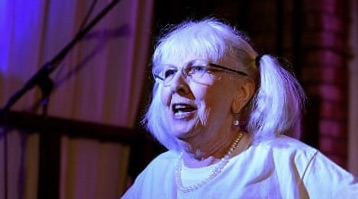The Mental Health for Actors Debate
Here’s a thought…

When it comes to Warmup up and Warming down:
Is it possible that a consistent training program that allows the performer to warm up to a state of readiness that is heightened but not hyper, could eventually allow that state to become habitual? Not to be habitually heightened, but to the extent that the performer is able to control and manage the degree of heightened-ness, and hence at the end of a performance they could manage the necessary readjustment – if any – to an acceptable ‘norm’.
In other words, the performer is totally in control of their own inner state at all times, on stage and off. The training allows them to acquire this skill, the ability to turn up and down AT WILL the level of heightened awareness necessary to perform on stage or in front of a camera – in other words, in a stressful situation requiring a high degree of conscious awareness coupled with an equally high degree of acting skill.
In my opinion, and from my own experience, it is not necessary to ‘psych oneself up’ to perform at maximum capacity if one has the appropriate skills. Because, in a sense, one is already there. And if that is so, it is not necessary to cool down afterwards on every occasion. Sometimes, yes. And this is also a skill that needs to be acquired through training and practise.
Such a training program would also benefit from the kind of cultural
awareness proposed by Kristine Landon-Smith. This kind of awareness makes a complete nonsense of the concepts of ‘neutral’ or ‘natural’ that are currently ubiquitous in Western actor training. These concepts are nothing but the hegemonic culture assuming a place at the head of a cultural hierarchy.
Ideas such as these are all capable of being absorbed into current acting techniques. There is nothing intrinsically wrong, or inappropriate, or harmful about the techniques – Sense memory, affective memory, Method, Practical Aesthetics, Meissner, Stanislavsky, Eric Morris, Viewpoints, Suzuki, Michael Chekhov, Viola Spolin, Meyerhold, Keith Johnstone, Lecoq, Gaulier to name but a few – it doesn’t matter what they are called, essentially they are all designed for one purposes: to allow the actor to skillfully reveal her humanity in the context of performance. However, the way they are taught is hugely influential in the effect upon the psyche, the emotional and intellectual well-being of the actor. At this stage (of my general ignorance of the specificities) I propose that if they are taught with the concepts of physical and cultural awareness built in, and if the students are trained to recognise the state of readiness, as well as the degree of heightened awareness that they are generating in themselves, that we would have a much healthier industry generally.
PS:
This approach to training has the added bonus in that the actors are able – safely and skilfully – to sustain a decent level of intensity throughout the interruptions that occur when rehearsing highly emotional scenes, without having to traumatise themselves. Certainly without directors feeling the need (or the authority) to traumatise them, to achieve the required level of intensity.


-
Tagged Alan Alda, Am I Old Yet?, Buzzsprout, Flloydwith2Ells, podcast